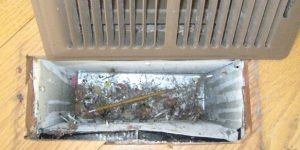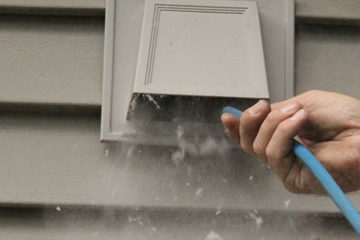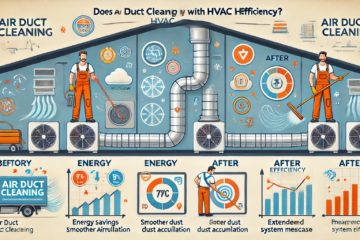What does a furnace cleaning consist of?
 During a furnace cleaning, a technician will typically begin by inspecting the burners to ensure that they are in good condition and not clogged with debris. The technician may also clean the burners to remove any dirt or other contaminants that could interfere with their operation.
During a furnace cleaning, a technician will typically begin by inspecting the burners to ensure that they are in good condition and not clogged with debris. The technician may also clean the burners to remove any dirt or other contaminants that could interfere with their operation.
Next, the technician will typically inspect and clean the heat exchanger. The heat exchanger is a crucial component of the furnace, as it is responsible for transferring heat from the burning fuel to the air being circulated through the home. If the heat exchanger is dirty or clogged, it can reduce the efficiency of the furnace and even pose a safety hazard.
The technician will also inspect and clean the blower and any related components, such as the motor and belts. The blower is responsible for circulating air throughout the home, and it is important to keep it clean and in good working order.
The technician will also inspect and clean the flue and chimney, which are responsible for venting the gases produced by the furnace out of the home. If these components are blocked or otherwise impaired, it can be dangerous as the gases could build up inside the home.
In addition, the technician will inspect and clean the thermostat, which controls the temperature in the home and tells the furnace when to turn on and off. The thermostat should be kept clean and in good working order to ensure that it is functioning properly.
Finally, the technician will check and replace the air filter, which helps to remove dust, dirt, and other contaminants from the air as it is circulated through the home. A dirty or clogged air filter can reduce the efficiency of the furnace and may also contribute to indoor air pollution.
Overall, a furnace cleaning is designed to ensure that the furnace is operating efficiently and safely, and to extend its lifespan.
Be Sure To Change Your Furnace Filter
There are several reasons why you may want to change your furnace filter:
Improved air quality: A dirty furnace filter can restrict the flow of air and reduce the effectiveness of your heating system. Changing the filter regularly will help to improve the air quality in your home and reduce the amount of dust and other contaminants circulating through your air.
Increased energy efficiency: A clean furnace filter allows your heating system to run more efficiently, which can save you money on your energy bills.
Prolonged furnace life: A dirty furnace filter can put extra strain on your heating system, potentially leading to premature wear and tear. Changing the filter regularly can help extend the life of your furnace.
Improved indoor comfort: A dirty furnace filter can make it harder for your heating system to maintain a consistent temperature in your home, leading to fluctuations in indoor comfort. Changing the filter regularly can help improve the overall comfort level in your home.
In general, it is recommended to change your furnace filter every one to three months, depending on the type of filter you are using and the level of use your heating system gets. It’s a good idea to check your filter every month and replace it if it looks dirty or clogged.



